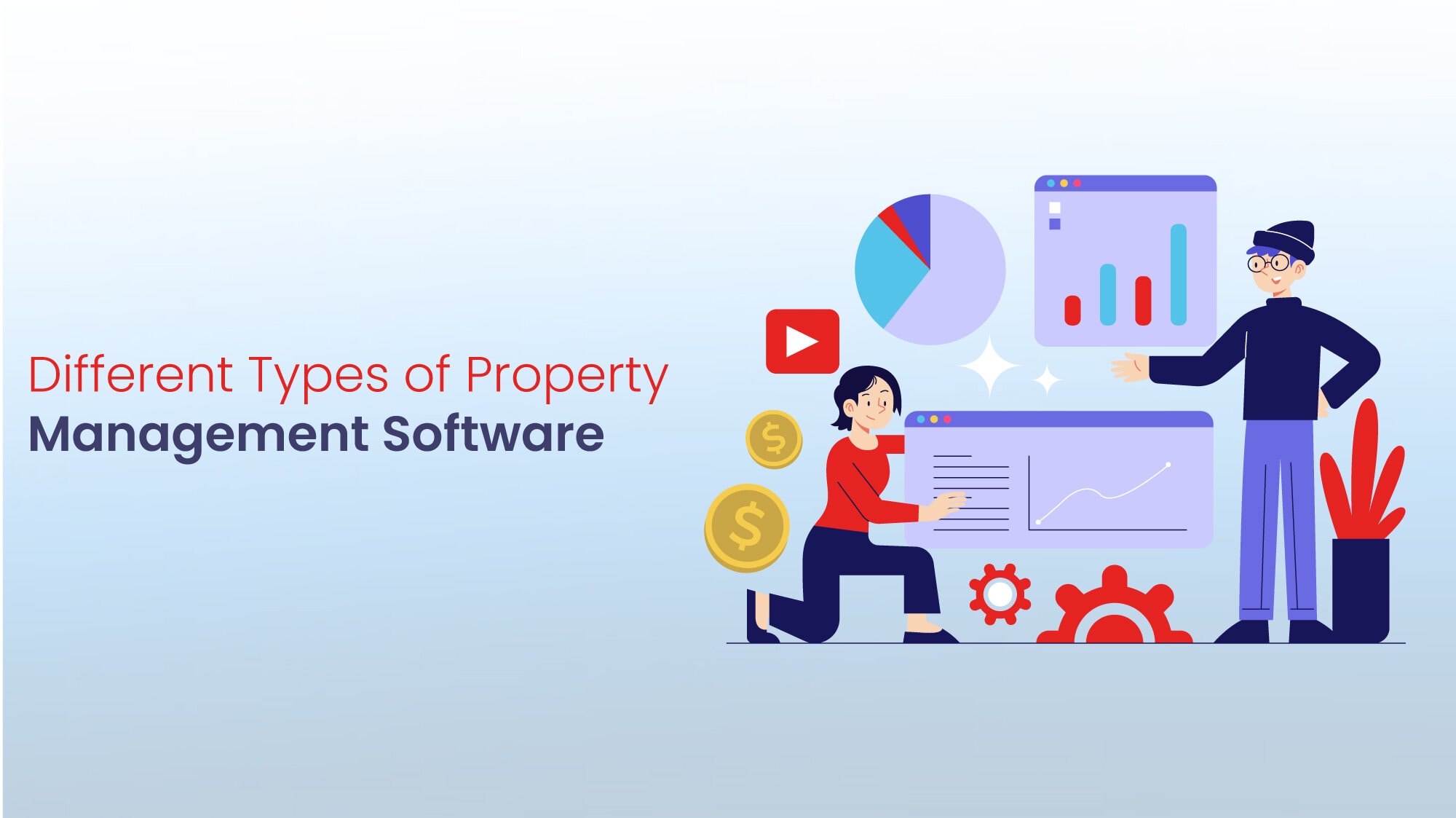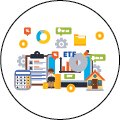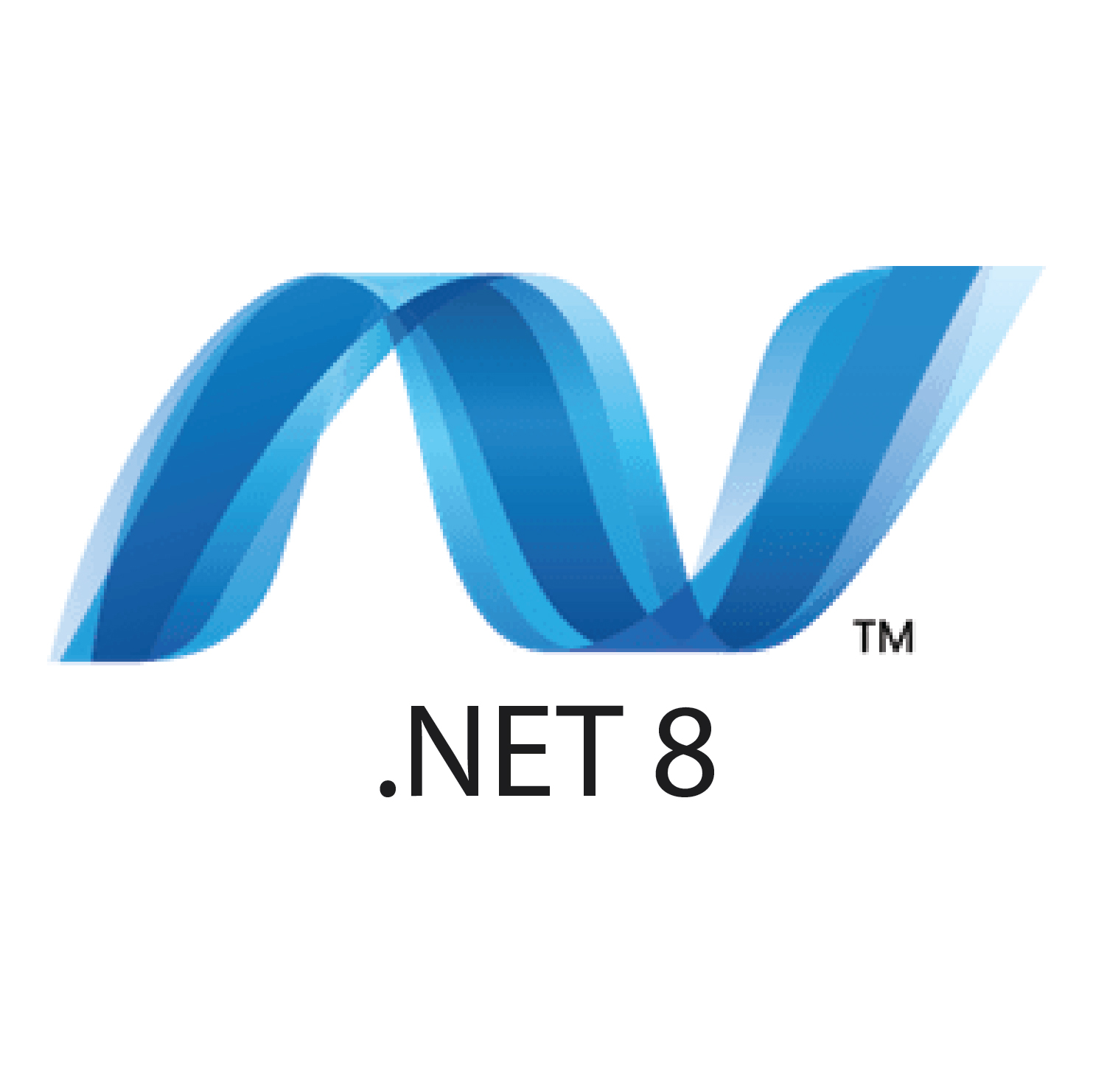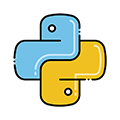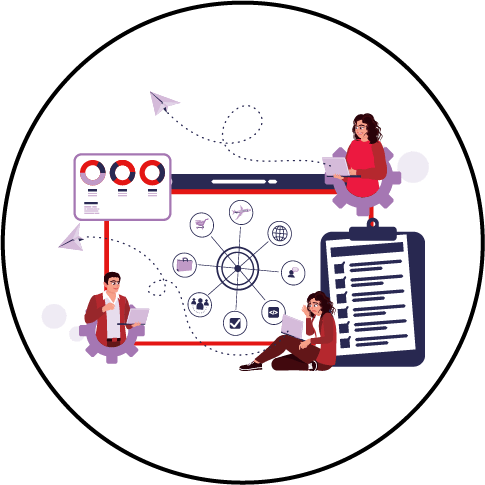Are you aware of the different kinds of property management software and how every piece serves its niche in the market? However, every category in property management has its needs and requires expertise when handling them well. This blog explores the key options available to help you find a perfect fit in securing the best way of managing your properties effectively.
Main Types of Property Management Software
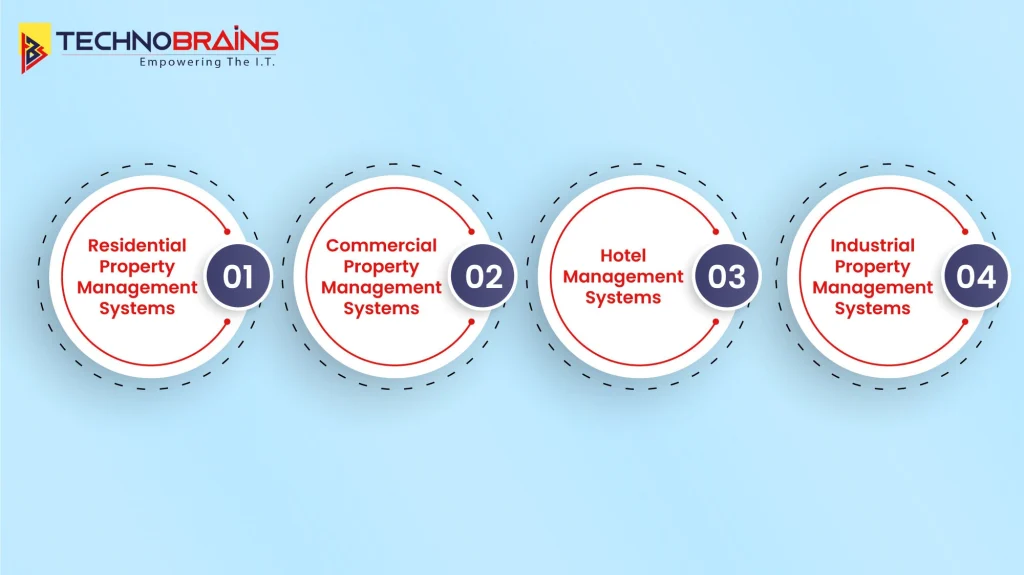
There are four types of property management software. Each software offers different advantages which can be beneficial.
1. Residential Property Management Systems
With Residential Property Management Systems you can have efficient management of residential property from single-family homes and apartments to complexes.
Key Features:
- Tenant and Lease Record Keeping: Track all information about your tenant, the lease agreement, and its renewal dates.
- Rent Collection: Make the process of rent collection easier by introducing online payment options and automated reminders.
- Maintenance Requests: Allow easy ways for placing and following up on maintenance requests.
- Accounting: Records and processes financial transactions; reports, and budgeting.
Read Also, Top 7 Essential Real Estate Tech Trends for Realtors
2. Commercial Property Management Systems
These systems are basically taken into account when it comes to managing commercial properties eg: office buildings, retail spaces, and industrial properties.
Key Features:
- Lease Management: Manage complex lease structures about escalations and renewals.
- Tenant Portal: Put account information and maintenance requests at tenants’ fingertips.
- Expense Tracking: Monitor and manage operational expenses and financial performance.
- Space Management: Optimise available space usage and deliver tenant fit-outs.
3. Hotel Management Systems
Hotel Management Systems facilitate operations within the hospitality industry. It does everything from reservations to different services given to guests while they stay here at the hotel.
Key Features:
- Booking Management: Reservations, cancellations, and room allotment are all handled.
- Guest Profiles: Keep a record of all guest details and their preferences.
- Front Office Operations: Handling check-in and checkout; handling room status.
- Revenue Management: Develop optimal pricing methods and track financial performance.
4. Industrial Property Management Systems
Industrial Property Management Systems, deal with the management of industrial property such as warehouses and centres for manufacture and distribution.
Key Features:
- Facility Maintenance: Record and track facility maintenance and repairs.
- Tenant Coordination: Coordinate with the tenant about space utilization and operational needs.
- Lease Administration: Follow-up on complex lease agreements and renewal processes.
- Compliance Management: Stay in compliance with the industry’s regulations and standards.
Other Types of Property Management Software
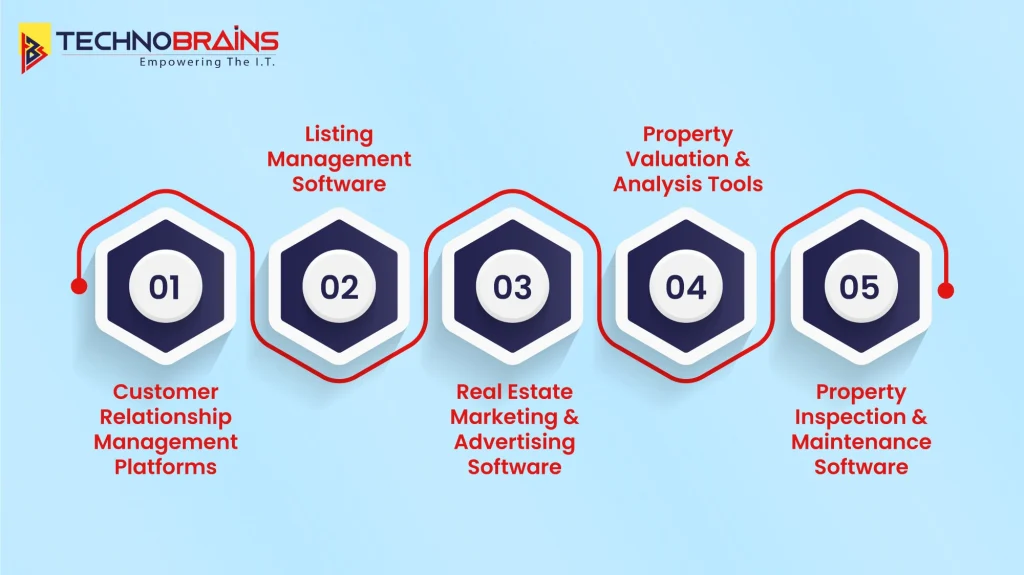
Other than the basic property management software types, several other tools can help make property management processes better.
1. Customer Relationship Management Platforms
Customer Relationship Management Platforms help in dealing with interactions that are centred on targeting potential and existing customers.
Key Features:
- Lead Tracking: Follow up and manage leads through times in the sales cycle.
- Client Communication: Assist in communicating through emailing, calling, and meetings.
- Data Analytics: Use client data to enhance the service and drive more engagement.
CRMs are useful for property managers and real estate professionals who prioritize client relations and business development.
2. Listing Management Software
This type of software is used to provide the help in the management of property listings across multiple platforms with much-needed features.
Key Features:
- Listing on Multiple Channels: Distribute listings across multiple sites and platforms.
- Synchronization: Listing information has to be consistent across all channels.
- Analytics: Track listing performance and viewer engagement.
It’s very valuable software, indeed, for real estate agents and property managers attempting to ensure optimally high property exposure.
3. Real Estate Marketing & Advertising Software
This kind of software helps in promoting properties to the mass audience through creating and running strategically targeted marketing and ad campaigns.
Key Features:
- Campaign Management: Designing and managing the marketing campaigns on a variety of platforms.
- Content Creation: This software can help in Design marketing materials such as brochures and online ads.
- Performance Monitoring: Measure the performance of marketing campaigns.
This kind of software brings in the major Benefits of Property Management Software and is used by real estate agents to enhance property exposure to attract prospective tenants or buyers.
4. Property Valuation and Analysis Tools
Property valuation and market analysis tools provide an accurate assessment of value coupled with a detailed analysis of market trends.
Key Features:
- Valuation Models: It makes use of data-driven models in the estimation of property values.
- Market Analysis: Follow market trends and look at sales for comparable properties.
- Investment Analysis: Evaluate potential investment opportunities.
This is important; tools like this allow investors and property managers to decide, based on the data available from the market.
5. Property Inspection and Maintenance Software
Property Inspection and Maintenance Software tools facilitate scheduling, managing, and tracking property.
Key Features:
- Inspection Scheduling: This module will deal with the implementation of property inspection schedules and management.
- Maintenance tracking: The feature that allows for the following maintenance issues and activities.
- Reporting: In-depth reports on the condition of properties and any maintenance needs.
This software ensures that properties are well taken care of and meet established standards.
Read Also, Ultimate Guide to Property Management Software
Conclusion
Property management software should be chosen properly to consider the effectiveness of the property operations. A custom solution is sure to be found regarding the management of residential, commercial, hotel, and industrial property. Looking for the best property management software development company? Consider TechnoBrains today.
Still stuck with questions? Contact Us today and get all your solutions here.
